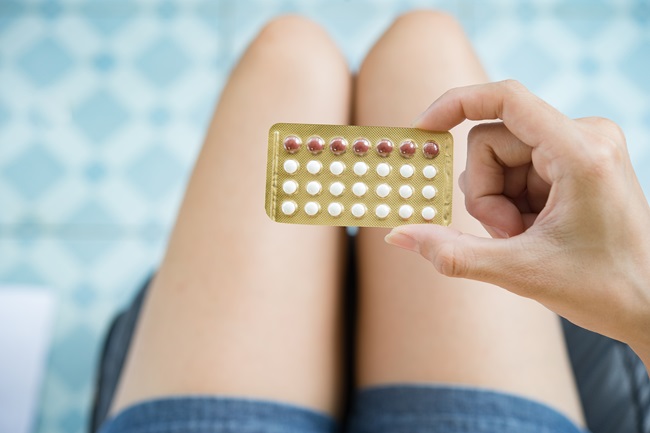Choosing birth control isn’t just about preventing pregnancy—it’s also about preserving your future fertility. In today’s world, more women are planning families later in life, which brings up an important question: Does birth control affect fertility? Thankfully, there are options designed to support both your short-term and long-term reproductive goals. Whether you’re preparing for a baby in a few years or just want a temporary solution, understanding fertility-friendly birth control is essential.
This article explores the safest contraceptive options for future conception, clears up myths, and gives you peace of mind when asking, “Will I still be able to get pregnant when I’m ready?”
Understanding the Link: Does Birth Control Affect Fertility?
Before diving into your options, let’s address the elephant in the room: Does birth control affect fertility? This is one of the most searched questions by women considering contraceptives, especially those who want children someday.
The short answer? Most birth control methods do not cause long-term fertility problems. However, how quickly your fertility returns can depend on the method used. Hormonal methods may delay ovulation for a short period after stopping, while barrier methods have no effect on fertility at all.
Temporary Delay vs Permanent Damage
It’s vital to distinguish between a temporary delay in fertility and permanent infertility. For example:
-
The pill may delay your cycle regulation for a month or two post-discontinuation.
-
Depo-Provera (the shot) may take 6-12 months before ovulation resumes.
-
IUDs (intrauterine devices) allow almost immediate return to fertility once removed.
In most cases, women can conceive within a year of stopping birth control, depending on their age and health.
Top Fertility-Friendly Birth Control Options
1. Barrier Methods
Best for: Immediate fertility after discontinuation
Examples: Male condoms, female condoms, diaphragms, cervical caps
Barrier methods physically prevent sperm from reaching the egg and do not affect hormone levels. Once you stop using them, your fertility remains unchanged.
Pros:
-
No hormones
-
Easily accessible
-
Zero impact on ovulation
Cons:
-
Less effective if not used correctly
-
No protection against STIs (unless using condoms)
2. Copper IUD (Paragard)
Best for: Long-term non-hormonal contraception
Does birth control affect fertility? Not with the copper IUD
This hormone-free device can last up to 10 years but is completely reversible. Once removed, fertility can return immediately, making it a top pick for women who want long-term contraception with future baby plans.
Pros:
-
No hormones
-
High effectiveness
-
Rapid return to fertility
Cons:
-
Insertion can be uncomfortable
-
Heavier periods for some users
3. Fertility Awareness Methods (FAM)
Best for: Women tracking their cycle naturally
Examples: Calendar method, basal body temperature, cervical mucus monitoring
These methods involve observing signs of ovulation and avoiding sex (or using condoms) during fertile days. Since no hormones or devices are used, they have zero impact on fertility.
Pros:
-
No side effects
-
Empowers body awareness
-
Supports natural conception planning
Cons:
-
Requires discipline and consistency
-
Less effective without proper education
Hormonal Birth Control and Its Impact on Fertility
4. Birth Control Pills, Patches, and Rings
Does birth control affect fertility? These hormonal options are designed to prevent ovulation. But here’s the good news: most women ovulate normally within 1-3 months after stopping.
However, age plays a role. If you’re over 35, returning to fertility may take longer due to natural fertility decline—not the contraceptive itself.
Pros:
-
Regulates periods
-
Reduces acne and PMS
-
Convenient and discreet
Cons:
-
Temporary fertility delay for some users
-
Requires daily/weekly adherence
5. Hormonal IUD (Mirena, Kyleena)
While this IUD releases low doses of progestin, studies show that over 80% of women conceive within a year of removal. It’s a reliable, reversible method with minimal impact on future conception.
Does birth control affect fertility? With hormonal IUDs, the effects are quickly reversible.
Pros:
-
Long-lasting (3-7 years)
-
Lighter periods or no periods
-
Fertility rebounds quickly
Cons:
-
Initial irregular bleeding
-
Possible hormonal side effects
6. Birth Control Shot (Depo-Provera)
This is the only method with a consistently longer delay in fertility—6 to 12 months or more after your last shot.
Does birth control affect fertility? It may delay it, but doesn’t cause infertility.
Pros:
-
Quarterly dosage
-
No daily pill
Cons:
-
Significant fertility delay
-
May cause weight gain
Planning Ahead: How to Switch from Birth Control to Baby-Ready
When transitioning from contraception to conception, here are steps to take:
1. Discontinue Hormonal Methods Early
If you’re using hormonal birth control, consider stopping 3-6 months before trying to conceive to give your body time to regulate.
2. Track Your Ovulation
Use ovulation predictor kits or track your cycle to understand your fertile window once your period returns.
3. Visit Your OB-GYN
Discuss your birth control history and any underlying conditions that might affect fertility. Your provider can help assess if any delays are due to the birth control or other factors.
FAQs: Your Fertility-Friendly Concerns Answered
Q: Can long-term birth control use cause infertility?
No. There’s no scientific evidence showing that extended use of hormonal birth control causes permanent infertility.
Q: What’s the safest birth control if I want kids in the future?
Barrier methods and IUDs (both hormonal and copper) are considered highly fertility-friendly.
Q: Does birth control affect fertility if I’ve used multiple types?
Not generally. Your body may need time to readjust, but fertility usually returns.
Final Thoughts: Choose What Supports Your Future
If you’re wondering, “Does birth control affect fertility?”, rest assured that most methods are safe and reversible. Choosing the right birth control is about more than preventing pregnancy—it’s about preparing for the future. Whether you want a baby in one year or five, fertility-friendly options give you control and peace of mind.









